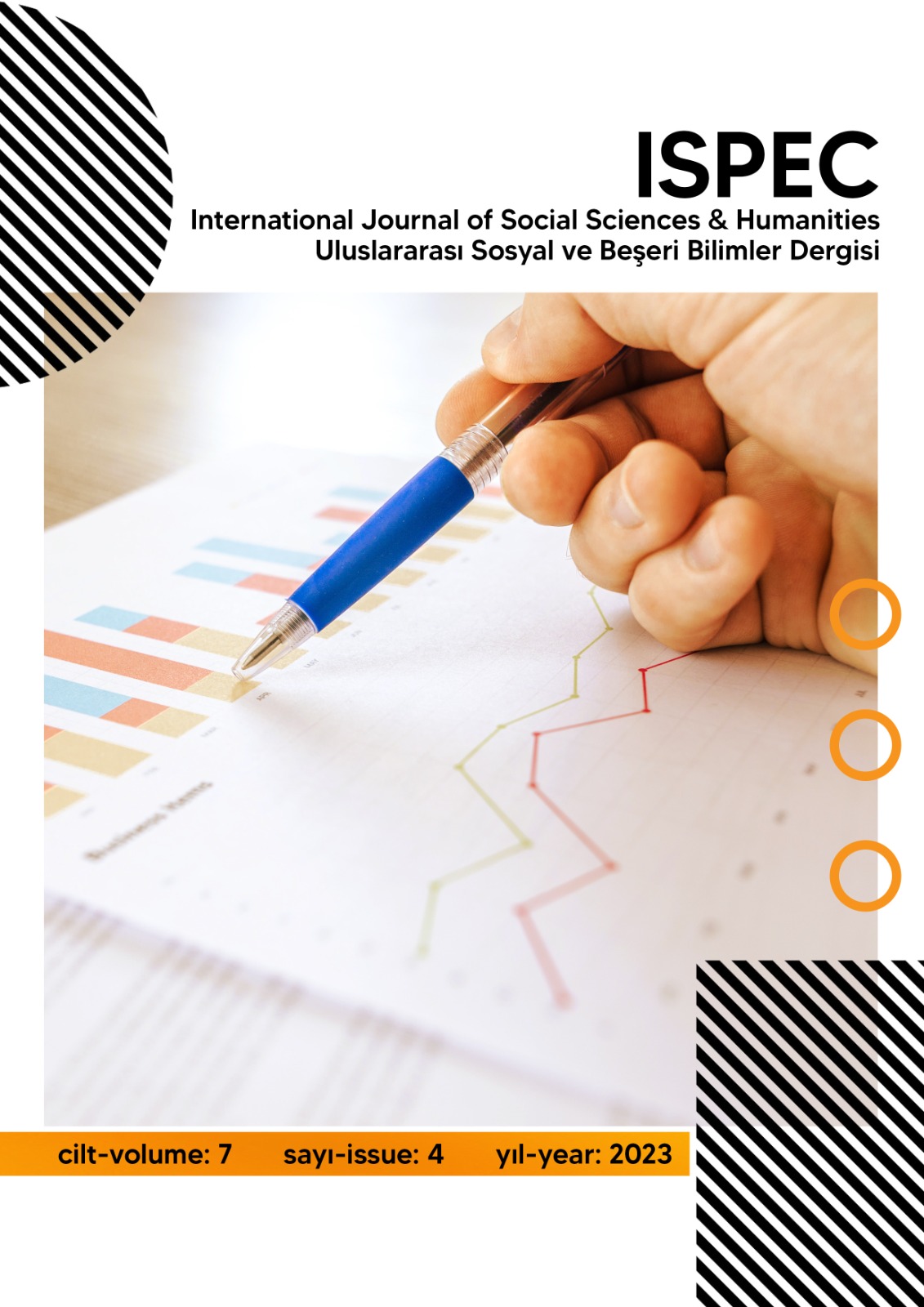A Sociological Perspective On Football In Terms Of “Belonging” And “Us”: Football In The Context Of Identity, Fanaticism And National Feelings
DOI:
https://doi.org/10.5281/zenodo.10436255Keywords:
Emotions, Football, Sense of Belonging, Fanaticism, National PassionsAbstract
Football, being a collective sport, it has become the most common sport in many societies and has played a role in shaping the modern sport culture. Football is the most common sport in Turkey as it is in the world. İt has become a form of identity by being different from other sports brancheswith its watching and fanship qualities. It is possible to observe that the number of spectators and the phenomenon of mass fanship extending far beyond the number of players are the reflection area of all kinds of human emotions. In this study, football was examined in the context of emotions. Emotion forms in football, which is a sport that appeals to communities, have been problematized in terms of their appearance on the axis of identification, belonging/collective identities, fanaticism and national excitements. Basic emotions such as passion, excitement, devotion, joy, happiness, sadness, anger, aggression and national passions emerge in the context of large masses in football. By observing the ways in which various social groups and individuals of all ages socialize with football, It is possible to argue that football is also a social field where all kinds of feelings about life are reflected.
References
Alver, K. (2010). Mahalle: Mekân ve hayatın esrarlı birlikteliği. İdealkent,(Sayı 2), Aralık 10,ss. 116-139.
Alver, K. (2018). Yerli yerinde, İstanbul:İz Yayıncılık.
Atabek, E. (2006). Türk futbolunun psikolojik, sosyolojik açıdan ve sağlık yönlerinden incelenmesi.(Türk Futboluna Yapısal Bakış Sempozyumu), (1. Baskı), 8-9 Mayıs, İstanbul Haliç Üniversitesi, İstanbul: 155.
Belge, M. (2017). Tarihten güncelliğe.(5.Baskı), İstanbul: İletişim Yayınları.
Bilgin, N. (2000). Sosyal psikolojiye giriş.(3.Basım). İzmir: Ege Üniversitesi Edebiyat Fakültesi Yayınları.
Boniface, P. (2007). Futbol ve küreselleşme. (Çev: Yerguz, İ.). İstanbul: NTV Yayınları.
Bora, T. Erdoğan, N. (2009). “Dur Tarih, Vur Türkiye”:Türk Milletinin Milli Sporu Olarak Futbol, Futbol ve kültürü(iç). (Der:Horak, R.,Reiter, W., Bora,T. ). (5.Baskı). İstanbul: İletişim Yayınları.
Bora, T. (2013). Karhanede romantizm: Futbol yazıları.(İkinci Baskı). İstanbul:İletişim Yayınları.
Critchley, S. (2018). Futbol düşünürken aslında ne düşünürüz?. (Çev:Tecimen, O.).(1.Baskı). İstanbul: Metis Yayınları.
Çupi, İ. (2002). Futbolun ölümü.(1.Baskı). İstanbul:İletişim Yayınları.
Derwall, J. (2004).Futbol basit bir oyun değildir. (Çev:Engin, A.,Kuruyazıcı, H.).(Birinci Basım). İstanbul: İş Bankası Kültür Yayınları.
Doğan, Y. (1989). Fenerbahçe cumhuriyeti. (2.Basım). İstanbul:Tekin Yayınevi.
Ergen, E. (2004). Spor bilimleri ve hekimliği yazıları.(1.Basım). Ankara:Nobel Yayınları.
Erkal, M., Güven, Ö., Ayan, D. (1998). Sosyolojik açıdan spor. (Genişletilmiş 3.Basım). İstanbul:Der Yayınları.
Fişek, K. (1985). 100 soruda Türkiye spor tarihi.İstanbul: Gerçek Yayınevi.
Foroughi, B., Nikbin, D., Hyun, Sunghyup S., Iranmanesh, M. (2016).Impact of core product quality on sport fans’ emotions and behavioral intentions. International Journal Of Sports Marketing and Sponsors, Vol. 17, No.2, 110-129.
Forsyth, D. R. (2010).Group Dynamics.(Fifth Edition).Wadsworth.
Fromm, E.(2008). Sevginin ve şiddetin kaynağı.(Çev:Salman, Y.,İçten, N.), (7.Baskı). İstanbul: Payel Yayınevi.
Galeano, E. (2008). Gölgede ve güneşte futbol. (Çev: Önalp, E.,Kutlu, M.N.), (4. Basım). İstanbul: Can Yayınları.
Gökaçtı, Mehmet Ali (2008). Bizim için oyna: Türkiye’de futbol ve siyaset.(1. Baskı). İstanbul: İletişim Yayınları.
Gökalp, E.,Panagiotou, N. (2008). Futbol!oyun mu, savaş mı? Türkiye-Yunanistan futbol maçlarının iki ülke basınındaki temsili ve milliyetçilik söylemi. Uygun adım medya: Bir bilinç körleşmesi(iç). (Ed:Cangöz, İ.).Ankara:Ayraç Kitabevi.
Gümüş, S. (2000). Futbol ve biz. İstanbul:Can Yayınları.
Hagger M.,Chatzisarantis N. (2005). The social psychology of exercise and sport. Open University Press, McGrawHill.
Hanin, Y. (2007). Emotions in Sport: Current issues and perspectives. Handbook of sport psychology.(Eds: G.Tenenbaum&R.C. Eklund). (3rd ed), Hoboken, NJ:John Wiley&Sons.
Hobsbawm, E. (2008). Küreselleşme, demokrasi ve terörizm. (Çev: Akınhay, O.). (1.Basım). İstanbul: Agora Kitaplığı.
Hobsbawm, E. (2010). Milletler ve milliyetçilik. (Çev: Akınhay, O.). (4.Basım). İstanbul: Ayrıntı Yayınları.
Jarvie, G. (2006). Sport, culture and society.(First published). London and New York: Routledge.
İlhan, A. (2018). Hangi sağ. (2.Basım). İstanbul:Türkiye İş Bankası Kültür Yayınları.
Jones, M.V. (2003). Controlling emotions in sport. The Sport Psychologist, 17, 471-486.
Ionescu S.,Voicu S., Gabor R. (2010). Sociological aspects of the ultras phenomenon in the city of Timisoara. Journal of Physical Education and Sport, 26(1), March, s.66-69.
Kağıtçıbaşı, Ç.,Cemalcılar, Z. (2014). Dünden bugüne insan ve insanlar: Sosyal psikolojiye giriş.(16.Basım), İstanbul: Evrim Yayınevi.
Kapuscinsky, R. (2000). Futbol savaşı. (Çev:Güven, G.Ç). İstanbul:Om Yayınevi.
Kerr, John H.,Etc. (2005). Emotional dynamics of soccer fans at winning and losing games. Personality and Individuals Differences, Volume 38, Issue 8, pp.1855-1866.
Kırca, A. (2000). Futbol hayattır.(3.Basım). İstanbul: Can Yayınları.
Konter, E. (2006). Spor psikolojisi el kitabı. Nobel Yayınevi.
Kozanoğlu, C. (1996). Türkiye’de futbol: Bu maçı alıcaz!.(1. Baskı). İstanbul: İletişim Yayınları.
Köknel, Ö. (2005). Kaygıdan mutluluğa kişilik.(17.Basım).İstanbul:Altın Kitaplar.
Köknel, Ö. (2013). Şiddet dili.(Birinci Basım). İstanbul: Remzi Kitabevi.
Naidenova, I.,Parshakov, P., Paklina, S.(2020). Determinants of football fans’ happiness: Evidence from facial emotion recognition. Journal of Happiness Studies,
Springer, vol. 21(3), pages 1103-1116, March.
Nesin, A. (2021). Gol kralı.(Onuncu Basım). İstanbul:Nesin Yayınevi.
Norum, R., Alexander, P., Bradley, S., Marsh, P. (2008). Football passions: Report of research conducted by The Social Issues Research Centre(SIRC), Commissioned by Canon. http://www.sirc.org/football/football_passions.shtml.
Ruehl, M. (2010). Fan identity and identification drivers-stoking the flames of the phoenix. A thesis submitted to the Victoria University of Wellington in partial fulfilment of the requirements for the degree of Master of Management Studies, Victoria University of Wellington.
Sayar, K. (2016).Ruh hali.(13.Baskı). İstanbul: TimaşYayınları.
Tarhan, N. (2014). Toplum psikolojisi: Sosyal şizofreniden toplumsal empatiye.(8.Baskı).İstanbul: Timaş Yayınları.
Yüce, M.(2020).Esir şehirde spor.(1.Basım), İstanbul: İBB Kültür A.Ş.
Zelyurt, M.K. (2017). Futbolda şiddet ve taraftarlık.(1.Basım).Ankara: Nobel Bilimsel Eserler.
Zelyurt, M.K. (2019). Spor sosyolojisi: Temsil-kimlik-taraftarlık-altyapı. Ankara: Akademisyen Kitabevi.
Cory, Stieg, Sports fans have higher self-esteem and are more satisfied with their lives (whether their teams win orlose), https://www.cnbc.com/2020/07/23/why-being-a-sports-fan-and-rooting-for-a-team-is-good-for-you.html, 23 July 2020.
https://shgm.gsb.gov.tr/Sayfalar/175/105/Istatistikler
https://skor.sozcu.com.tr/2013/12/08/manu-kaybedince-intihat-etti-226390/
https://www.history.com/news/nelson-mandela-1995-rugby-world-cup-south-african-unity
Downloads
Published
How to Cite
Issue
Section
License
Copyright (c) 2023 ISPEC International Journal of Social Sciences & Humanities

This work is licensed under a Creative Commons Attribution-NonCommercial-NoDerivatives 4.0 International License.






